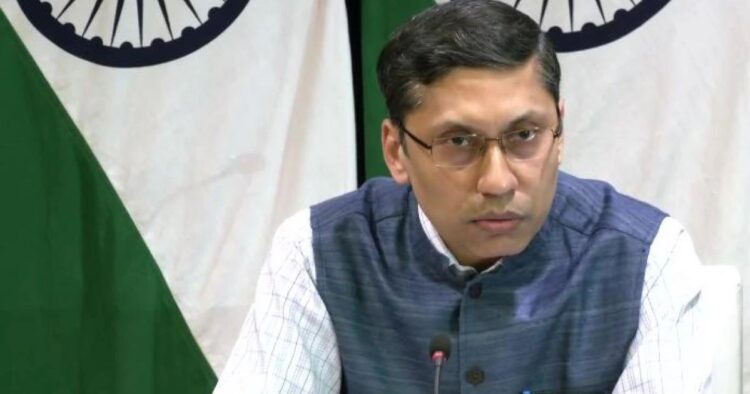In a strong rebuttal to the recently released Human Rights Report by the US State Department, Bharat’s External Affairs Ministry has labeled the document as “deeply biased” and devoid of any value.
The report, which highlights various incidents of alleged human rights abuses in Bharat, including in Manipur, and concerning the BBC, has drawn criticism from Bharatiya officials.
One of the key points raised in the report focuses on the situation in Manipur, where ethnic conflict between the Meitei and Kuki communities erupted in May 2023. Report indicates, at least 175 people lost their lives in the violence, and over 60,000 were displaced. The conflict stemmed from protests against the inclusion of Meiteis in the Scheduled Tribe (ST) category.
In addition, the report highlighted the actions of Bharatiya tax authorities against the BBC. Searches were conducted at the Delhi and Mumbai offices of the UK-based broadcaster on allegations of International Taxation and Transfer Pricing irregularities.
These searches came shortly after the BBC released a documentary titled “India: The Modi Question,” which examined the 2002 Gujarat riots.
Another incident mentioned in the report is the killing of Khalistani terrorist Hardeep Singh Nijjar in Canada. The report suggests that this incident is part of a broader pattern of extrajudicial actions by state agents.
Randhir Jaiswal, the spokesperson for Bharat’s Ministry of External Affairs, dismissed the report, stating that it reflects a poor understanding of Bharat and should be disregarded. The Bharatiya government asserts that it attaches no value to the report and encourages others to do the same.
Following the release of the report, Robert Gilchrist, a senior bureau official at the US State Department, urged Bharat to uphold its human rights commitments. However, Bharatiya officials maintain their stance, emphasizing that the report lacks credibility and fails to accurately represent the situation in the nation.
The rejection of the Human Rights Report by Bharat underscores the ongoing tensions between the two countries regarding the issue of human rights and highlights the divergent perspectives on the matter.

















Comments